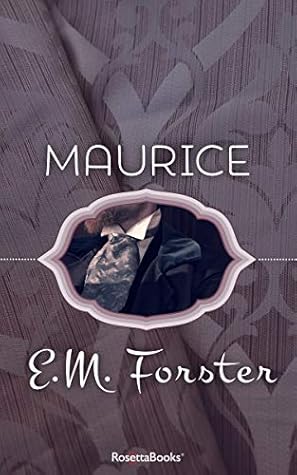More on this book
Community
Kindle Notes & Highlights
The second dream is more difficult to convey. Nothing happened. He scarcely saw a face, scarcely heard a voice say, “That is your friend,” and then it was over, having filled him with beauty and taught him tenderness. He could die for such a friend, he would allow such a friend to die for him; they would make any sacrifice for each other, and count the world nothing, neither death nor distance nor crossness could part them, because “this is my friend.”
The school clapped not because Maurice was eminent but because he was average. It could celebrate itself in his image.
Maurice became modest and conscious of sin: in all creation there could be no one as vile as himself: no wonder he pretended to be a piece of cardboard; if known as he was, he would be hounded out of the world.
But his heart had lit never to be quenched again, and one thing in him at last was real.
When they sat it was nearly always in the same position—Maurice in a chair, and Durham at his feet, leaning against him. In the world of their friends this attracted no notice. Maurice would stroke Durham’s hair.
He loved men and always had loved them. He longed to embrace them and mingle his being with theirs. Now that the man who returned his love had been lost, he admitted this.
He had in him the impulse that destroyed the City of the Plain.
He was obliged however to throw over Christianity. Those who base their conduct upon what they are rather than upon what they ought to be, always must throw it over in the end, and besides, between Clive’s temperament and that religion there is a secular feud.
He wished Christianity would compromise with him a little and searched the Scriptures for support. There was David and Jonathan; there was even the “disciple that Jesus loved.” But the Church’s interpretation was against him;
When Hall started teasing he was charmed. Others held off, regarding him as sedate, and he liked being thrown about by a powerful and handsome boy.
Clive, who was in the mood Maurice adored—half mischievous, half passionate; a mood of supreme affection.
Section after section the armies of humanity were coming alive. Alive, but slightly absurd; they misunderstood him so utterly: they exposed their weakness when they thought themselves most acute. He could not help smiling.
Clive knew that ecstasy cannot last, but can carve a channel for something lasting,
μὴ φῦναι τὸν ἅπαντα νικᾷ λόγον,
He hadn’t a God, he hadn’t a lover—the two usual incentives to virtue. But on he struggled with his back to ease, because dignity demanded it. There was no one to watch him, nor did he watch himself, but struggles like his are the supreme achievements of humanity, and surpass any legends about Heaven.
do you come across unspeakables of the Oscar Wilde sort?”
while beyond the barrier Maurice wandered, the wrong words on his lips and the wrong desires in his heart, and his arms full of air.
He smiled sadly. “It comes to this then: there always have been people like me and always will be, and generally they have been persecuted.”
And he rejoiced because he had understood Alec’s infamy through his own—glimpsing, not for the first time, the genius who hides in man’s tormented soul.
He got out and looked down out of the grayness, his arms hanging empty. It was as if he wished to be remembered thus. “I could easy have killed you.” “Or I you.”
Love was an emotion through which you occasionally enjoyed yourself. It could not do things.
Alec was not a hero or god, but a man embedded in society like himself, for whom sea and woodland and the freshening breeze and the sun were preparing no apotheosis.
Her air and sky were theirs, not the timorous millions’ who own stuffy little boxes, but never their own souls.
I was yours once till death if you’d cared to keep me, but I’m someone else’s now—I can’t hang about whining for ever—and he’s mine in a way that shocks you, but why don’t you stop being shocked, and attend to your own happiness?”
It was finished in 1914.
I was determined that in fiction anyway two men should fall in love and remain in it for the ever and ever that fiction allows, and in this sense Maurice and Alec still roam the greenwood.


